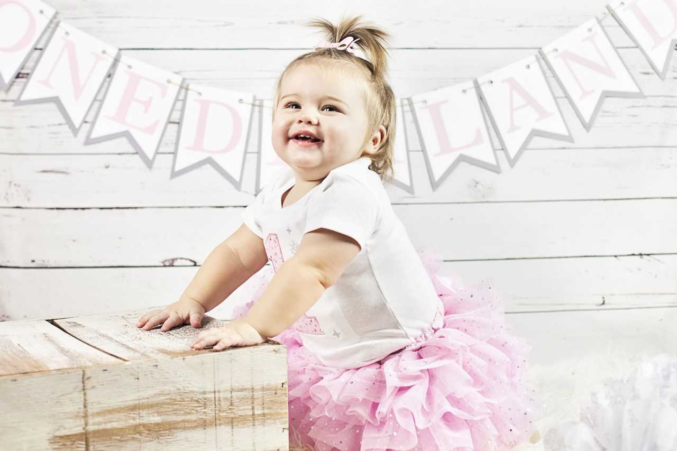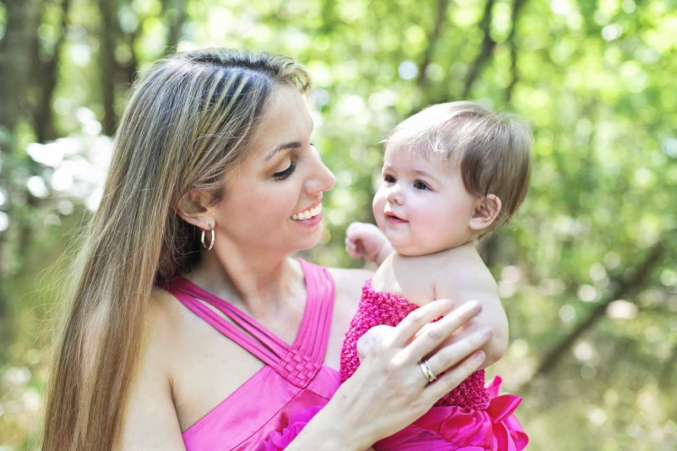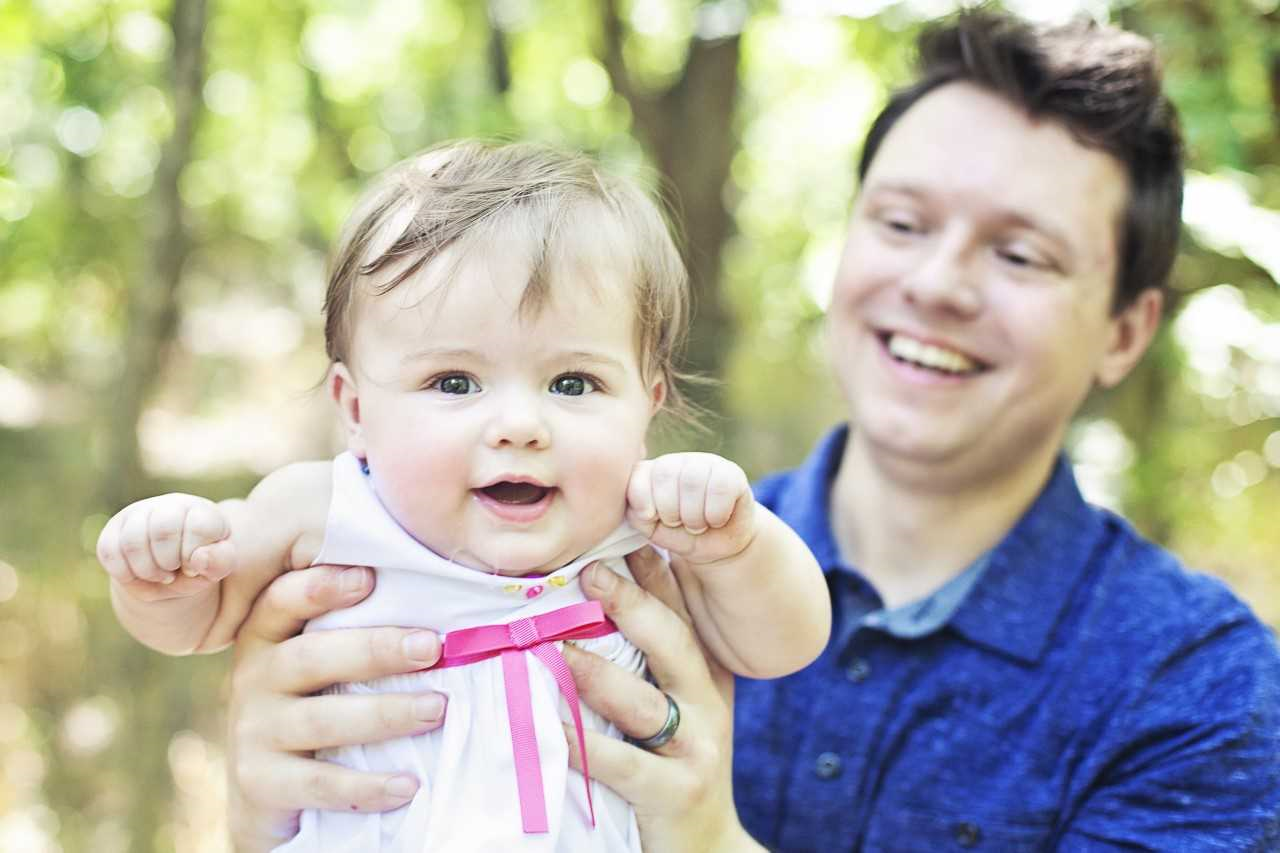When Morgan Holz was younger, she just assumed her life would follow a typical trajectory—go to college, start a career, meet someone and fall in love, get married, and have children. For the most part, that happened. She met with success on most of her life goals, except one—having children. While infertility isn’t uncommon or as unheard of as it was years ago, for Morgan, now 38, it was an unexpected diagnosis and one that was more challenging than she ever imagined.
Morgan married her husband, Matt, in 2010 when they were both 30 years old. Like many couples, they decided to travel for a few years and enjoy each other before starting a family. When she was 32, Morgan decided to stop birth control and let fate determine their course. And that it did.
Although she wasn’t considered “advanced maternal age” at the time, Morgan wanted to get more than the standard blood work done at her annual appointment. She wanted to know if there would be any red flags that may signal an issue with her fertility. Her AMH (anti mullerian hormone) test showed a dramatically low ovarian reserve, which means a low egg supply. “I assumed we would need Clomid, and my doctor quickly let me know we were far past that option,” Morgan says. “She mentioned injections and IVF, and I was stunned.”

Jenny Lea Photography
Morgan saw a fertility specialist who agreed that in vitro fertilization (IVF) was the best option, but he wouldn’t advise it unless she used donor eggs. “I wasn’t ready for IVF after hearing about how hard it can be,” she says. “It was a lot to take in at the time, and I felt overwhelmed and disheartened.”
Morgan spent the upcoming holidays researching fertility treatments and came across a website for a fertility clinic, IVFMD: Fertility Specialists, in Irving, led by reproductive endocrinologist Dr. Sy Le. He and his physician colleagues, Dr. Beverly Reed and Dr. Renju Raj, specialize in a procedure she hadn’t heard of yet, Mini IVF, which seemed like a potential solution for her fertility issue. After her first appointment in 2014 with Dr. Le, despair turned into optimism when he told Morgan that because she does, in fact, have some eggs, that means she can get pregnant. “He said as long as you are still producing eggs, you have just as good of a chance as anyone else,” she says. Morgan, then 34, began the prep work for IUI (artificial insemination) because she still wasn’t quite ready for the time and expense associated with IVF. She had two back-to-back IUI’s to increase the chances of becoming pregnant. However, neither was successful.
The Holzs went on to do another two IUI procedures and each time they did not result in a pregnancy. They decided to go with Dr. Le’s original suggestion for a Mini IVF procedure. For patients with low ovarian reserve, the traditional IVF strategy has been to use aggressive stimulation to safely collect as many eggs as possible in one cycle. However, for patients like Morgan whose ovaries can only produce a few eggs per cycle, there comes a point when maximum stimulation is no longer cost effective. For these patients, a gentler stimulation protocol that combines the body’s natural reserve of FSH (follicle stimulating hormone) with a lighter dose of medications can give the same stimulating effect and may be more productive. Instead of wasting money on high doses of medications that are unlikely to be effective, the resources can be channeled into a couple of Mini IVF cycles to accumulate more embryos to improve the chance of success.
For seven months, Morgan visited Dr. Le’s office to see if she had at least three follicles to start. “It became so overwhelming and heartbreaking when there were still no mature follicles”, she says. “Finally, at month seven, I had two follicles, so we decided to go ahead with the stimulation and retrieval.”

Jenny Lea Photography
However, this didn’t mean the transfer would soon follow. “Per Dr. Le’s suggestion, we decided to freeze the embryos and wait longer for more mature follicles so that we could get the most embryos possible,” Morgan says. “It took yet another eight months to get another one. He said we would only go as far as I could physically and emotionally go. Some days I wanted to quit, but I knew deep down I could go further.”
With both retrievals behind her, Morgan had three viable embryos. She waited until her next cycle and the transfer was scheduled. In April 2016, two embryos were transferred during Morgan’s first frozen embryo transfer procedure. Eleven days later she got the call that she was pregnant. “I could hear the nurses crying with happiness in the background,” she says. “It took a while for it to sink in that it was real. I don’t think it was until my daughter was born that I actually believed this was real—more than three years of struggle, countless tears, going into Dr. Le’s office for two years, and we finally had our baby.”
Evelyn Claire was a Christmas Eve baby born to Matt and Morgan Holz, then both 37, on December 24, 2016. The Holzs give all the credit for their daughter to Dr. Le, who partnered with them throughout the entire process, never letting them give up hope.
Dr. Le has been helping men and women with fertility issues realize their dream of becoming parents for more than two decades. A fertility specialist with a passion for making treatment cost affordable, he founded IVFMD in 1997 with locations in Irving, Grapevine, and Arlington. Dr. Le is among the few clinicians in the U.S. who is also certified as a high-complexity laboratory director. He serves as the medical and laboratory director for IVFMD, overseeing both the clinical practice and the assisted reproductive technologies (ART) program at the practice. He is board certified in obstetrics and gynecology as well as the subspecialty of reproductive endocrinology and infertility. When designing treatment plans for their patients, Drs. Le, Reed, and Raj use a focused, holistic approach that includes basic therapy techniques as well as the most advanced treatment options available. As Dr. Le tells many patients, “It only takes one healthy egg to make a big difference, and we have had patients who conceived with as few as one or two eggs.”
 Jenny Lea Photography
Jenny Lea Photography
The Holzs still have one embryo “on ice” waiting for transfer so Evelyn can hopefully have a sibling. Morgan is starting preparations for her next frozen embryo transfer with Dr. Le. She offers the following advice to couples with fertility struggles who are in the process of achieving their dreams of growing their family:
- Research and educate yourself as much as possible. Just being able to do something helps you feel more in control and like you are actively working toward a solution. Also, be your own advocate and stay involved in the conversation. Ask questions.
- Be ready for questions from well-meaning friends and family. Not everyone understands the struggles of infertility and assumes that “old wives’ tale” type remedies will work, such as relaxing more, taking a vacation, or even eating certain foods. Try not to let the inquiries about having a baby cause undue stress.
- Join support groups. There are many local groups with women who are facing or have faced infertility who give each other support and exchange ideas and information. You can also find virtual support groups online.
- Don’t be too hard on yourself or your spouse. Infertility isn’t anyone’s fault and is a medical issue, just like any other. It isn’t something to be ashamed of. It’s so easy to go over the “what if” and “if only.” An occasional meltdown will happen, but always try to move away from it and move forward.
- Don’t move forward with something until you are mentally ready for it. However, you’ll be surprised at what you are capable of when it’s your only option.
To learn more about the latest fertility treatments, such as Mini IVF, seek the advice of an experienced fertility doctor. IVFMD offers basic and breakthrough diagnostic and treatment options to unlock fertility potential. IVFMD, through its centers in Irving, Grapevine, and Arlington, provides IVF that is both effective and affordable. Established in 1997, IVFMD is one of the few fertility centers in Dallas Fort Worth that can claim 20 years of experience with consistently high IVF pregnancy rates year after year. IVFMD has helped thousands of patients build families while earning a reputation for excellent and thoughtful care. Even patients with a history of failed fertility cycles or low egg reserve have renewed hope once an IVFMD physician devises the exact combination of innovative fertility services tailored to each individual’s unique situation.





